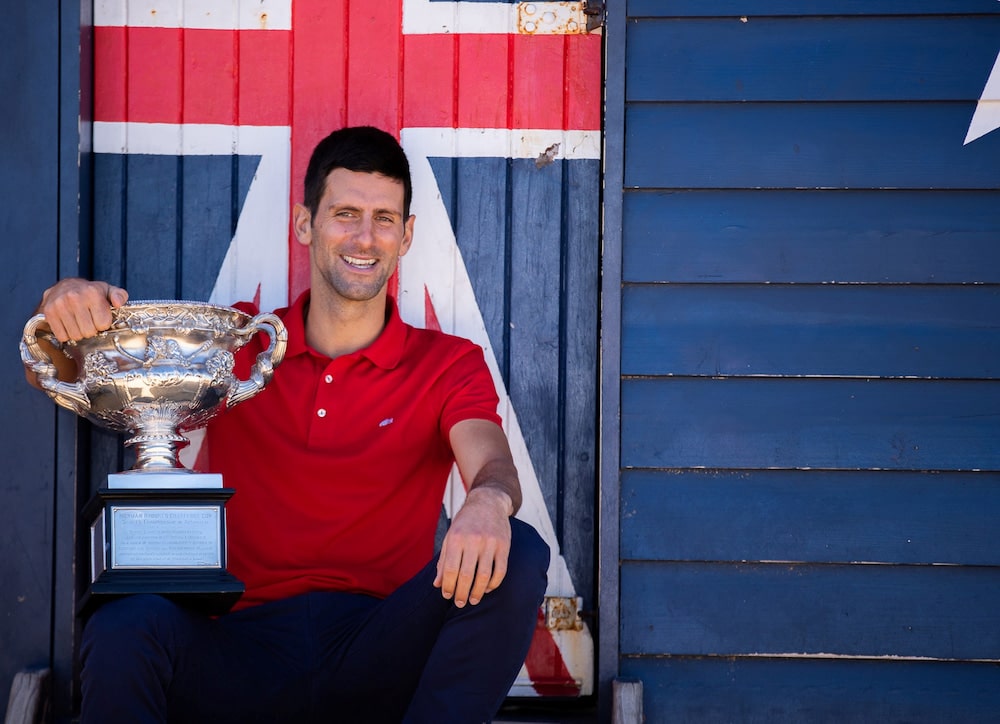A judge who will decide tennis world No.1 Novak Djokovic’s chance to play in the Australian Open has questioned what more he could have done to enter Australia.
The 34-year-old Serbian entered Australia late on Wednesday after declaring he had a medical reason not to get vaccinated against COVID-19.
But he has been in immigration detention after having his visa cancelled early the following morning.
A Federal Circuit Court hearing before Judge Anthony Kelly got underway half an hour late on Monday and has been plagued by technical issues, with a live stream of the hearing repeatedly crashing.
Judge Kelly ordered shortly after midday that Djokovic be taken to a confidential location specified by his solicitors on Monday for the duration of the hearing “and to secure his safe return to detention upon the conclusion”.
Nick Wood SC says Djokovic declared before boarding his flight to Australia from Dubai that he had a medical contraindication and was able to provide evidence – a medical exemption by Tennis Australia.
Judge Kelly asked: “What more could this man have done?”
“Here, a professor and an eminently qualified physician have produced and provided to the applicant a medical exemption,” he said.
“Further to that, that medical exemption and the basis on which it was given, was separately given by a further independent expert specialist panel established by the Victorian state government.”
The judge said those documents were in the hands of the immigration department delegate who made the decision to cancel his visa on behalf of Home Affairs Minister Karen Andrews.
Mr Wood said Djokovic was “utterly confused” because he had done everything that was asked of him.
Documents released by the Federal Court on Saturday show Djokovic contracted COVID-19 on December 16 and was free from symptoms before he arrived in Australia.
His lawyers will argue he met the criteria for a temporary exemption under Australian Technical Advisory Group on Immunisation (ATAGI) guidelines and was denied procedural fairness during the decision to revoke his visa.
Documents cite the ATAGI advice, including: “COVID-19 vaccination in people who have had PCR-confirmed SARS-CoV-2 infection can be deferred for a maximum of six months after the acute illness, as a temporary exemption due to acute major medical illness”.
Djokovic was questioned by authorities through the night, between his arrival just before midnight Wednesday and the visa cancellation at 7.42am Thursday.
A partial transcript records Djokovic telling authorities he wasn’t vaccinated against COVID-19. He has previously declined to confirm his vaccination status.
Government submissions say Djokovic is wrong to challenge the claim that previous infection is grounds for an exemption.
They say the ATAGI advice is clear that past infection is not a contraindication for infection and instead a person can defer vaccination for six months after acute illness.
“There is no suggestion that the applicant had ‘acute major medical illness’ in December 2021,” the documents say.
“All he has said is that he tested positive for COVID-19. That is not the same.”
The ATAGI advice also says a person who tests positive can receive a first or second dose of a COVID-19 vaccination once they are asymptomatic.
Australian government lawyers have asked the judge to reject Djokovic’s legal challenge and order he pay costs.
But should he win and the court order his immediate release, they want the judge to make it clear there’s nothing stopping them detaining him again.
“An order for immediate release does not prevent re-detention if there is power to detain,” submissions on behalf of Home Affairs Minister Karen Andrews said.
The hearing is continuing.
Get all the latest Canberra news, sport, entertainment, lifestyle, competitions and more delivered straight to your inbox with the Canberra Daily Daily Newsletter. Sign up here.



